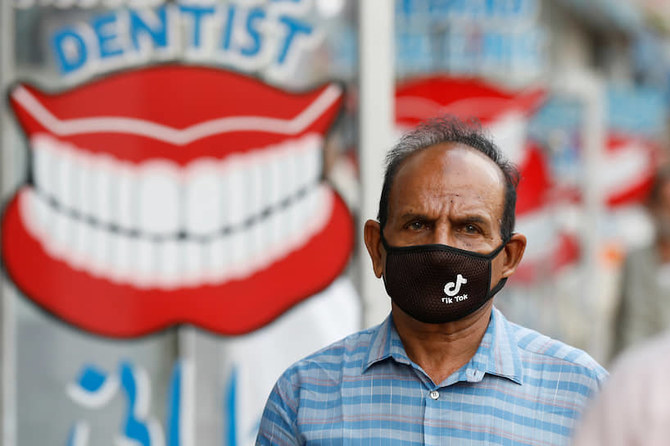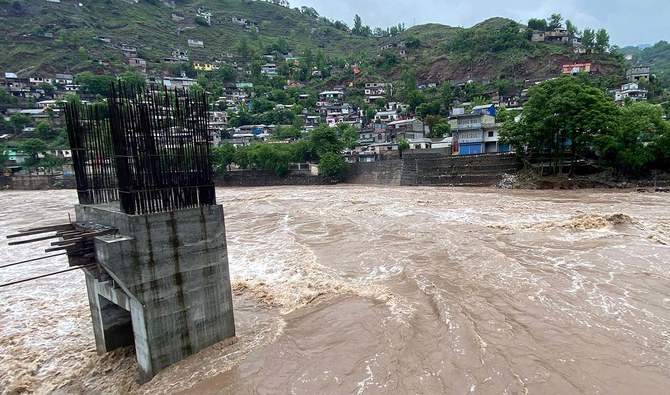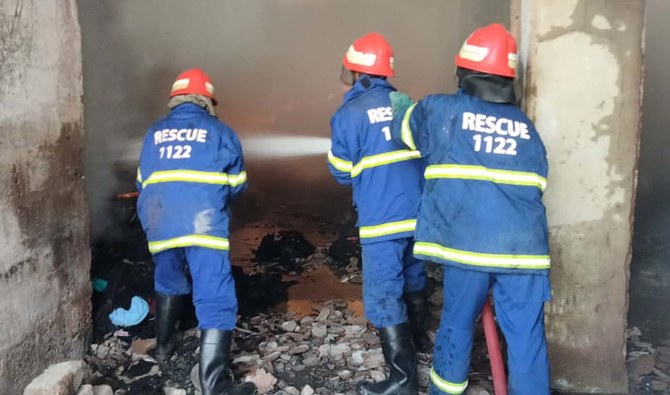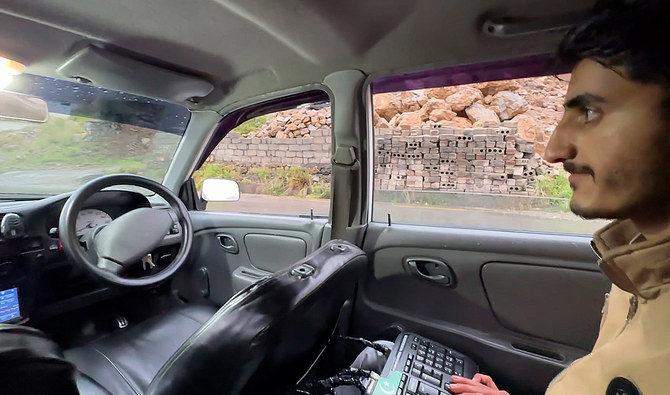KARACHI: Chinese social media application TikTok, recently banned by Pakistan, will be unblocked if it removes “vulgar” content, the country’s information technology minister told Arab News on Saturday.
Pakistan’s telecommunications regulator, the Pakistan Telecommunication Authority (PTA), said on Friday it had banned TikTok over failing to remove “immoral” content from its platform after being granted “considerable” time to comply with the authority’s instructions.
“For the time being, (TikTok) has been closed. If they give guarantee, then it will be allowed to reopen,” Syed Aminul Haque, the federal minister for information technology and telecommunication, told Arab News.
“They were warned twice during last three months to remove the vulgarity related content. Every time they promised but did not comply,” he said, adding that the government is ready talk to TikTok.
#LISTEN: #PTA banned #TikTok over failing to remove “immoral” content from its platform after being granted “considerable” time says minister for IT & telecom @SyedAminulHaque || @MoitOfficial #Pakistan #China
-
Read special by @Khurshid72: https://t.co/IQMC5JDDjQ pic.twitter.com/qrNFA2noqm— Arab News Pakistan (@arabnewspk) October 11, 2020
“If they approach (us), we will sit with them and after removal of the content, it (the app) will be restored,” Haque said.
After warnings in August, in September PTA said it had approached TikTok to immediately block “objectionable content” available on its platform in Pakistan and prevent the use of its platform “for disseminating illegal content.”
PTA did not say at the time what actions it would take if TikTok did not comply with its orders.
The decision to block the social media platform has stirred a debate, with experts warning that the move will have adverse economic impacts.
“Platforms like Facebook, YouTube, TikTok are the cheapest source of marketing outreach and fastest conversion sources. If the touch points of access to market are closed and we don’t understand their needs, then many small and micro business will be affected. Their marketing cost was low due to these marketing tools,” Badar Khushnood, member of the National E-Commerce Council (NeCC), told Arab News.
“It would be far better to make decision by multi-stakeholder engagement”, Khushnood said. “We need to understand how these new communication technologies operate. How to align our cultural, religious, and national agendas with them for this deep multi-stakeholder engagement is must.”
#LISTEN: Closing down platforms like #Facebook, YouTube, #TikTok is not the solution. We need to understand how to align our cultural, religious, & national agendas with them, says member of NeCC @Badar76 || #Pakistan #China
-
Read special by @Khurshid72: https://t.co/IQMC5JDDjQ pic.twitter.com/m4DOnn56dc— Arab News Pakistan (@arabnewspk) October 11, 2020
The ban is also seen as detrimental to the government’s Digital Pakistan Policy to accelerate the country’s digitization for economic development.
“It shows a regulatory environment where apps can be blocked and that makes the environment unfriendly to investors, especially in the tech sector at a time where the IT sector is growing,” said Usama Khilji, director of Bolo Bhi, a civil society organization geared toward advocacy, policy, and research in the areas of digital rights in Pakistan.
“Moreover, apps like TikTok are a source of income for thousands of content creators, with some having a following of more than 10 million. This shows the economic potential that such a ban averts to the detriment of so many creative Pakistanis,” he told Arab News.
One of Pakistan’s most popular TikTok celebrities, Hareem Shah, said the ban would affect those who make a living from the platform.
“If we look at TikTok, there were many poor who have taken to this platform as means of livelihood. Their means of livelihood has been taken away ... This should not happen,” she said.
#WATCH: #TikTok #ban will have economic and intellect impacts, disturbing the livelihood of content creators, says Tiktoker @Hareemshah33 || #Pakistan #China
-
Read special by @Khurshid72: https://t.co/IQMC5JDDjQ pic.twitter.com/5qqs61kfA8— Arab News Pakistan (@arabnewspk) October 11, 2020
According to political analysts, blocking social media platforms makes Pakistan look like a county that is not too keen on allowing innovative disruptive technology companies to grow.
In August, Pakistan blocked five dating apps, namely Tinder, Tagged, Skout, Grinder and SayHi. In July, PTA said it had banned the Singaporean live-streaming app Bigo over “immoral, obscene and vulgar content.” Bigo was subsequently unblocked. The hugely popular online game PUBG also remained banned in Pakistan through July.
“Applying laws in such a broad manner does not send the right message to local and international investors and startups. It raises a cloud over Pakistan’s technology sector,” Uzair Younus, political economist and host of podcast Pakistonomy, told Arab News from Washington.
#WATCH: Applying laws in such a broad manner does not send the right message to local and international investors and startups, says political economist & host of podcast Pakistonomy @UzairYounus || #Pakistan #China #TikTok
-
Read special by @Khurshid72: https://t.co/IQMC5JDDjQ pic.twitter.com/aHQpBa3boV— Arab News Pakistan (@arabnewspk) October 11, 2020


















